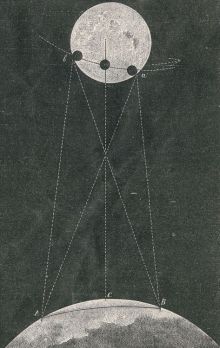The following excerpts are from Thomas Kuhn’s famous book “The Structure of Scientific Revolutions.” Kuhn’s view of science was that science had nothing to do with truth, and that paradigms and worldviews determine what scientists constitute science over all.
“To the extent that… two scientific schools disagree about what is a problem and what is a solution, they will inevitably talk through each other when debating the relative merits of their respective paradigms. In the partially circular arguments that regularly result, each paradigm will be shown to satisfy more or less the criteria that it dictates for itself and to fall short of a few of those dictated by its opponent… [N]o paradigm ever solves all the problems it defines and since no two paradigms leave all the same problems unsolved, paradigm debates always involve the question: Which problems is it more significant to have solved?
Like the issue of competing standards, that question of values can be answered only in terms of criteria that lie outside the normal science altogether, and it is that recourse to external criteria that most obviously makes paradigm debates revolutionary…
 The history of astronomy provides many other examples of paradigm-induced changes in scientific perception, some of them even less equivocal. Can it be conceivably be of an accident, for example, that Western astronomers first saw change in the previously immutable heavens during the half-century after Copernicus’ new paradigm was first proposed? The Chinese, whose cosmological beliefs did not preclude celestial change, had recorded the appearance of many new stars in the heavens at a much earlier date. Also, even without the aid of a telescope, the Chinese had systematically recorded the appearance of sunspots centuries before these were seen by Galileo and his contemporaries…
The history of astronomy provides many other examples of paradigm-induced changes in scientific perception, some of them even less equivocal. Can it be conceivably be of an accident, for example, that Western astronomers first saw change in the previously immutable heavens during the half-century after Copernicus’ new paradigm was first proposed? The Chinese, whose cosmological beliefs did not preclude celestial change, had recorded the appearance of many new stars in the heavens at a much earlier date. Also, even without the aid of a telescope, the Chinese had systematically recorded the appearance of sunspots centuries before these were seen by Galileo and his contemporaries…
What occurs during a scientific revolution is not fully reducible to a reinterpretation of individual and stable data. In the first place, the data are not unequivocally stable. [For example:] A pendulum is not a falling stone, nor is oxygen dephlogisticated air. Consequently, the date that scientists collect from these diverse objects are, as we shall shortly see, themselves different…
Operations and measurements are paradigm determined. Science does not deal in all possible laboratory manipulations. Instead, it selects those relevant to the juxtaposition of a paradigm with the immediate experience that that paradigm has partially determined. As a result, scientists with different paradigms engage in different concrete laboratory manipulations…
Does a field make progress because it is a science, or is it a science because it makes progress?
Doubts about progress [often] rise in the sciences. Through the pre-paradigm period when there is a multiplicity of competing schools, evidence of progress, except within schools, is very hard to find… During periods of revolution when the fundamental tenets of a field are once more at issue, doubts are repeatedly expressed about the very possibility of continued progress if one or another of the opposed paradigm is adopted…
Often a new paradigm emerges, at least in embryo, before a crisis has developed far or been explicitly recognized…A scientific community is an immensely efficient instrument for solving the problems or puzzles that its paradigms define… [but we must ask] What must nature, including man, be like in order that science be possible at all? Why should scientific communities be able to reach a firm consensus unattainable in other fields? Why should consensus endure across one paradigm change after another? And why should paradigm change invariably produce an instrument more perfect in any sense than those known before?…
Any conception of nature compatible with the growth of science by proof is compatible with the evolutionary view of science developed here. Since this view is also compatible with close observation of the scientific life, there are strong arguments for employing it in attempts to solve the host of problems that still remain.”